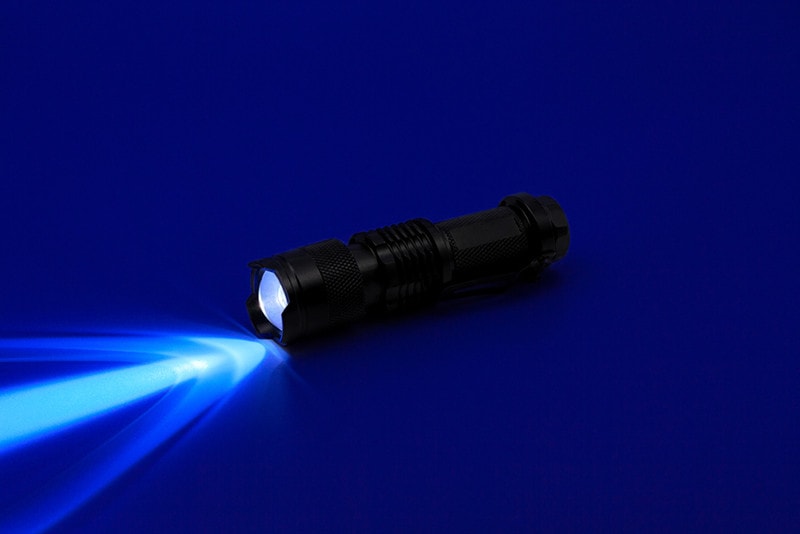7 Foods High in Vitamin K for Dogs: Vet Reviewed Advice & FAQ
Updated on
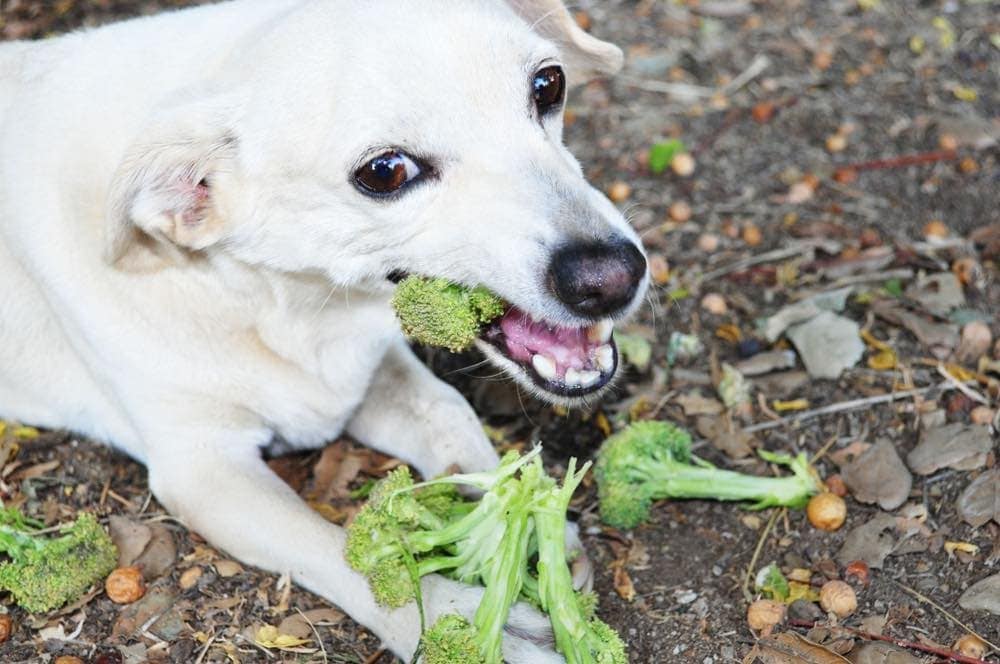
Vitamin K is a fat-soluble vitamin, meaning it requires bile salts and fats to be absorbed in the gut. It is found mainly in two forms: vitamin K1 (also called phylloquinone) and vitamin K2 (menaquinone). K1 is mainly found in plant foods, such as dark leafy greens. K2 is found in certain animal foods and fermented foods.
This vitamin plays a key role in blood clotting and bone health in all animals, including dogs. While K2 is naturally synthesized in the intestinal tract of mammals, some dogs could benefit from an extra dose of vitamin K in their diet if they have underlying medical conditions, though be sure to check with your veterinarian first1.
Here are seven vitamin K-rich foods that you can include in your pup’s diet if your vet sees fit.
The 7 Foods High in Vitamin K For Dogs
1. Leafy Greens
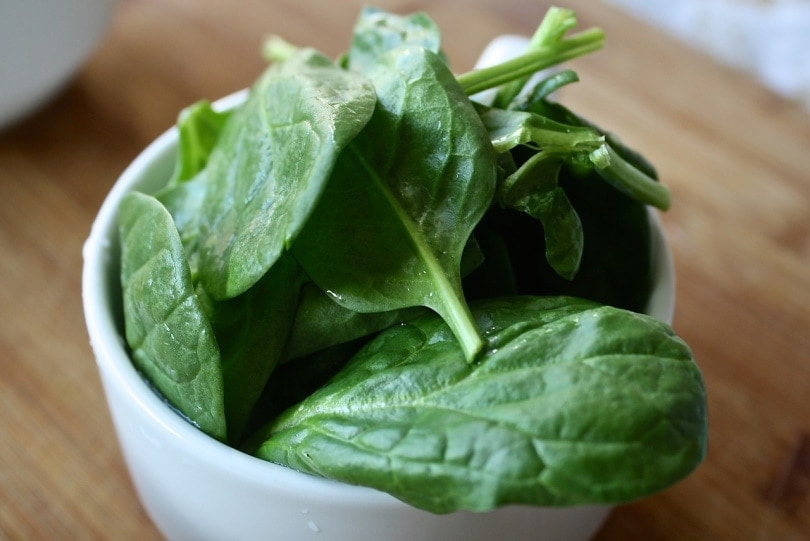
Leafy greens like kale, Swiss chard, spinach, and collard greens are powerhouses of vitamin K, as well as vitamins A, B, and C, iron, antioxidants, beta-carotene, and fiber. They also contain very few calories, so they make good snacks if your pup tends to gain weight easily.
However, you should exercise caution before giving these vegetables to your dog! Many leafy greens contain oxalates, which can be harmful to pets when consumed in large quantities. These compounds of oxalic acid are present in certain plants and must be eliminated in the urine. However, since they are not very soluble in urine, they tend to form crystals by binding to magnesium and calcium present in the blood. This blocks the body’s ability to absorb these electrolytes. In addition, the kidneys must work hard to excrete oxalates, which can cause kidney damage and even renal failure1.
Therefore, discuss with your veterinarian before including these vegetables in your dog’s diet. If they do give you the green light, it is still preferable to give your pup steamed leafy greens, as these will be easier to digest.
2. Broccoli
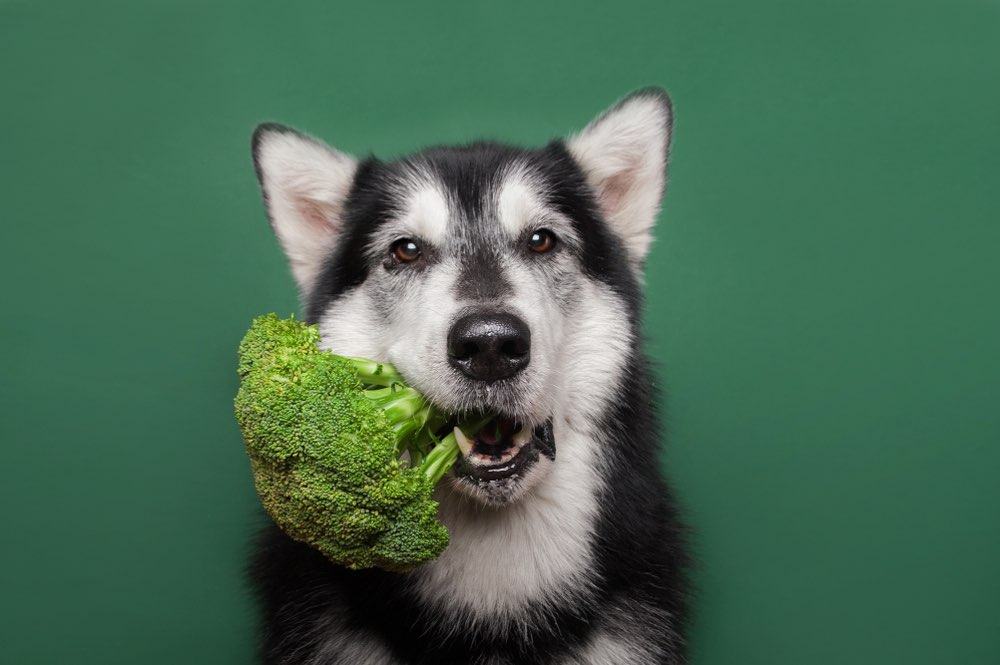
This cruciferous vegetable is rich in vitamin K, vitamin C, folic acid, calcium, fiber, and antioxidants. It has many health benefits for dogs and is safe to eat but only in small amounts (less than 10% of their daily intake)2.
There are several reasons for this: First, broccoli can make your pup gassy due to the high amount of fiber. Second, broccoli florets contain a compound called isothiocyanate, which can cause an upset tummy and gastric irritation in some dogs. Third, there is a choking hazard with the broccoli stalks. Serving tiny pieces of steamed broccoli to your furry friend is essential to avoid these potential issues.
3. Brussels Sprouts
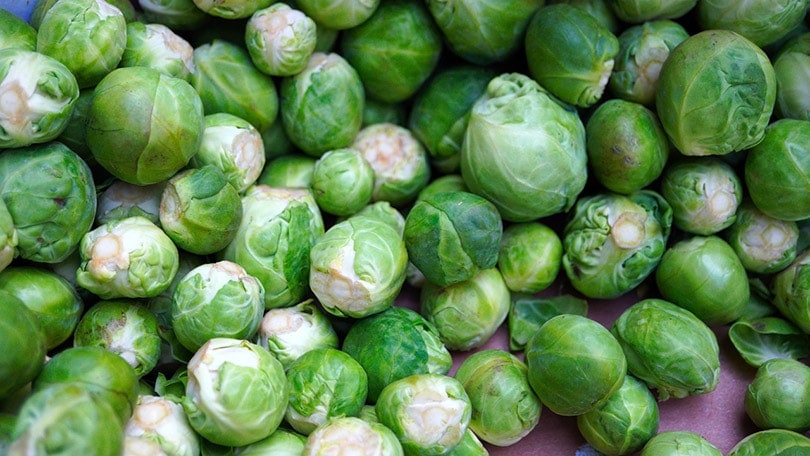
Brussels sprouts are cruciferous vegetables packed with vitamin K, vitamin C, potassium, phosphorus, beta-carotene, and antioxidants.
They’re also high in fiber and contain the same compound as broccoli (isothiocyanate), so too many can cause gas and stomach irritation in your pup. Therefore, watch the portions, and cook the sprouts first to improve their digestibility.
4. Green Beans
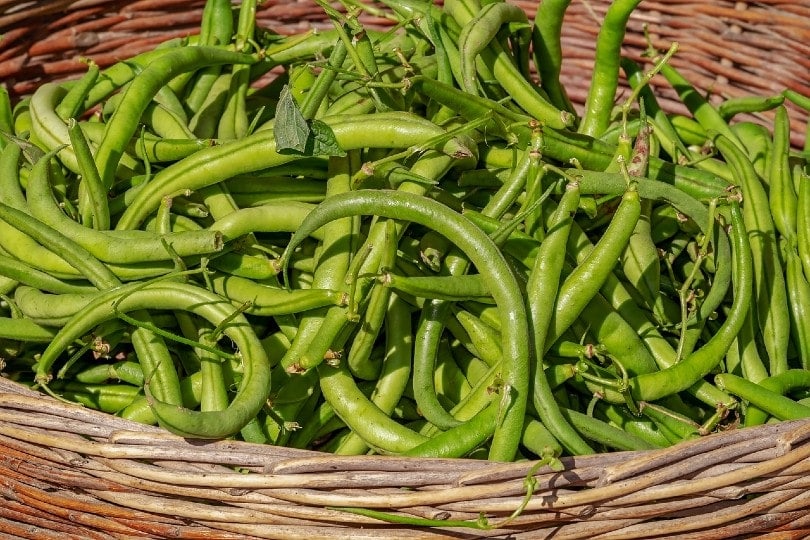
Good news for green bean lovers: Whether they’re raw or cooked, you can safely share your favorite snack with your four-legged friend. This nutritious vegetable is an excellent source of vitamin K, vitamin A, fiber, and minerals like potassium and calcium. Best of all, green beans are low in calories, making them great treats. However, be sure to serve them plain, without adding salts or other spices that may be harmful to your canine.
See Also: Can Dogs Eat Bean Sprouts?
5. Cucumbers
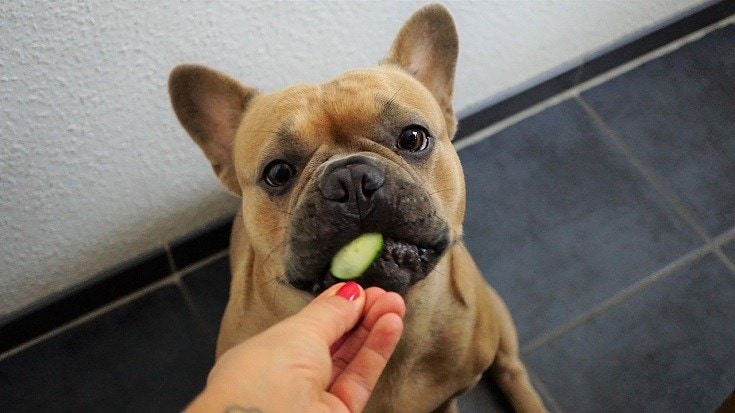
If your dog is overweight, cucumbers should be your number-one healthy treat choice! Indeed, cucumbers are composed mainly of water and contain only traces of carbs and fats. They’re also packed with vitamins K, C, and B, as well as essential minerals and fiber. But don’t give your dog a whole cucumber, to avoid the risk of choking.
6. Beef Liver
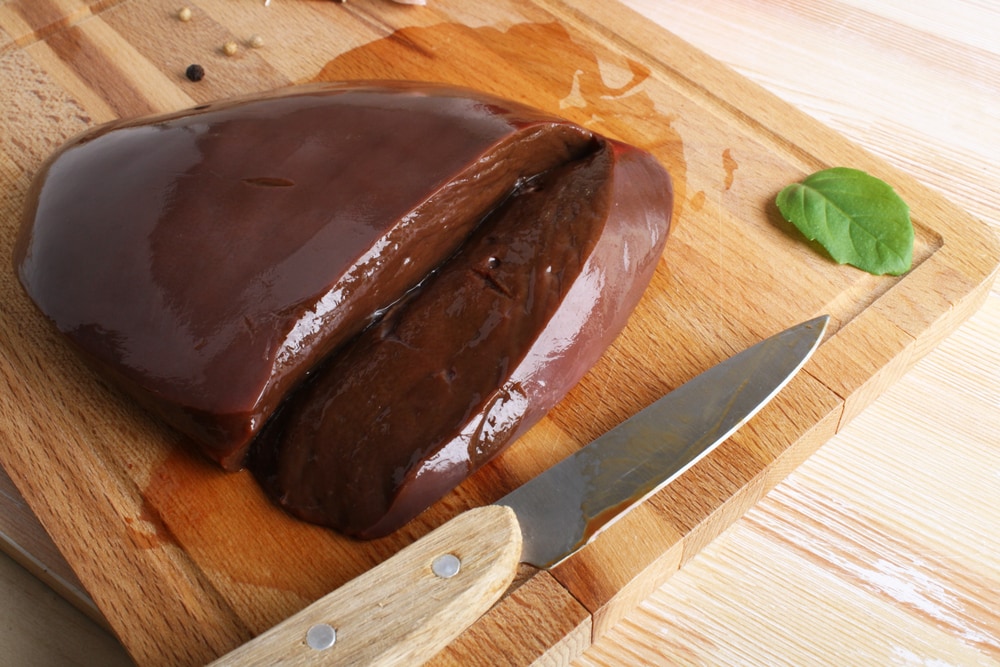
Beef liver is a rich source of vitamin K2, vitamin A, essential minerals, and protein and contains less fat than chicken liver4. You can occasionally offer your dog small quantities of beef liver, as long as it is cooked without spices or salts.
7. Chicken
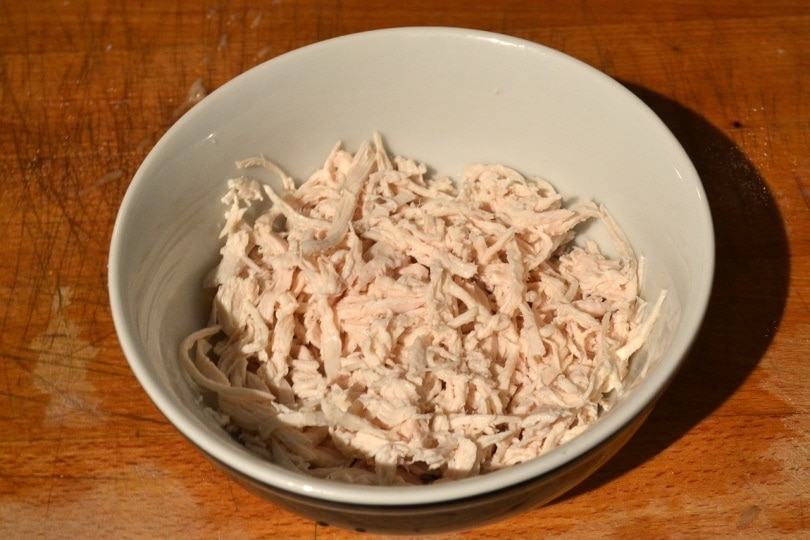
Chicken is a good source of vitamin K and safe for your pet, but you must cook it before giving it to your dog (to prevent a Salmonella infection) and make sure it’s plain.
Why Do Dogs Need Vitamin K?
Vitamin K is fat soluble and therefore, can be stored in fat. It helps make various proteins and plays a role in blood clotting (vitamin K1) and the development and health of bones (vitamin K2).
Be aware that if your dog accidentally ingests rat poison, vitamin K1 therapy administered by a veterinarian is the only antidote.
What Are the Signs of Vitamin K Deficiency in Dogs?
The main clinical sign of vitamin K deficiency observed in all animals is reduced blood coagulation. Hemorrhages, anemia, and impaired bone mineralization can occur in acute cases of vitamin K deficiency.
According to the U.S. Food and Drug Administration (FDA), these deficiencies can occur when your pet’s diet is not well-balanced and sufficiently rich in nutrients. But they can also result from insufficient absorption of vitamin K by the intestine or from the inability of the liver to use this vitamin.

Can a Dog Overdose From Too Much Vitamin K?
In humans, vitamin K rarely reaches toxic levels in the body, as it is broken down quickly and excreted in urine or feces. It seems to be the same for dogs, as according to Pet Poison Helpline, there are virtually no reports of vitamin K overdoses.
The American Veterinary Medical Association also published a report on the safety of vitamin K1 in pet foods, and to date, there are no reports of hypervitaminosis K or toxic effects in dogs or cats fed synthesized vitamin K1.
Final Thoughts
The key takeaway from this article is that there are some food options you can feed your dog if your vet recommends it to increase their vitamin K levels. Green leafy vegetables are among the best sources of vitamin K1, but their high oxalate content makes them poor options for dogs with kidney problems. Another option is broccoli or brussels sprouts which make crunchy and nutritious treats for dogs, but keep in mind that they can cause stomach upset and gas when eaten in large amounts. Green beans and cucumbers are delicious, low-calorie treats that contain a good amount of vitamin K. Moreover, they are completely safe to feed your pup. Cooked chicken and beef liver can also be given in small amounts from time to time. Be sure to consult your vet before making any major changes to your dog’s diet and to find out if they really need extra vitamin K.
Featured Image Credit: Wild As Light, Shutterstock





